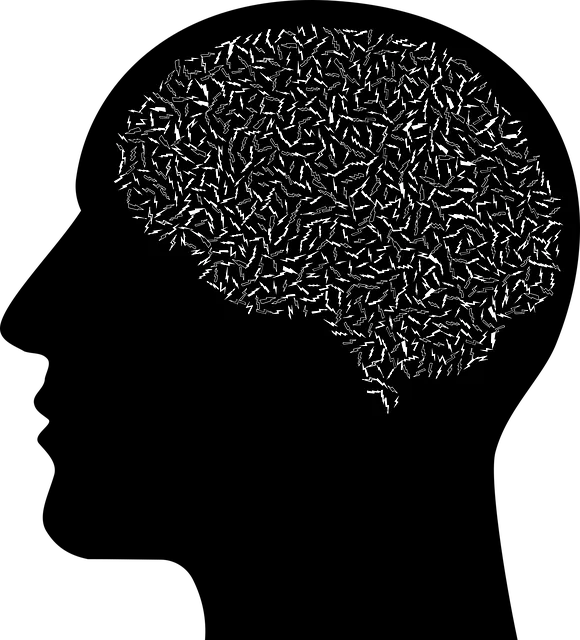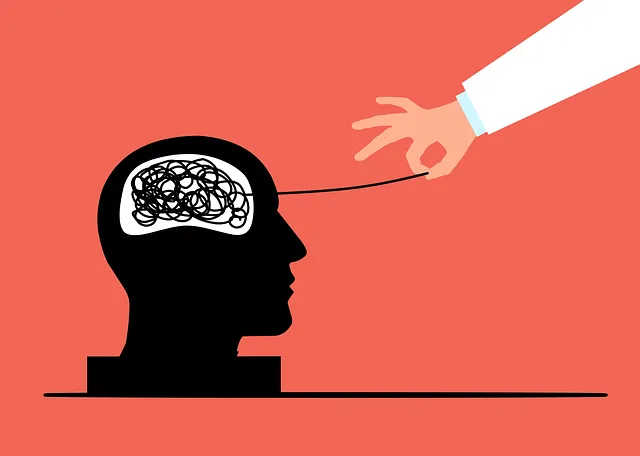The Kaiser Permanente mental health center in Louisville offers a holistic approach to mood regulation, emphasizing self-awareness through journaling and mindfulness practices. Their innovative strategies include developing coping mechanisms, fostering resilience, and implementing self-care routines like exercise and creative outlets to prevent burnout. Positive reviews highlight their comprehensive therapeutic services, evidence-based practices, and community-building efforts, which contribute to improved emotional well-being and quality of life for Louisville residents, as supported by research on lifestyle adjustments and the power of supportive communities.
Discover effective mood regulation strategies that can transform your emotional well-being. From understanding the science behind mood balance to practical techniques like mindfulness, meditation, and lifestyle adjustments, this guide offers a holistic approach to mental health. Explore the benefits of therapy at Louisville’s leading Kaiser Permanente mental health center, where professionals provide compassionate care. Learn how supportive communities and peer connections can enhance your journey towards emotional resilience, as reviewed by satisfied patrons.
- Understanding Mood Regulation: Unlocking Emotional Balance
- The Role of Therapy and Counseling in Louisville's Mental Health Center
- Mindfulness and Meditation Techniques for Everyday Practice
- Lifestyle Adjustments: Diet, Exercise, and Sleep for Improved Mood
- Supportive Community and Peer Connections: Building a Network of Care
Understanding Mood Regulation: Unlocking Emotional Balance

Understanding Mood Regulation is a pivotal step towards achieving emotional balance and overall well-being. At the Kaiser Permanente mental health center in Louisville, professionals emphasize that mood regulation isn’t about eliminating emotions but learning to navigate them effectively. It involves recognizing triggers, developing coping mechanisms, and fostering resilience. By understanding our unique emotional responses, we can better manage stress, anxiety, and depression, which are often at the root of many mental health concerns.
This process begins with self-awareness—identifying patterns in our thoughts, feelings, and behaviors. The Kaiser Permanente Louisville team encourages clients to explore their emotions through various means, including journaling, meditation, and conflict resolution techniques. Additionally, they promote Self-Care Routine Development for Better Mental Health as a powerful tool. By integrating activities that replenish energy, whether it’s exercise, creative pursuits, or quality time with loved ones, individuals can proactively prevent burnout and cultivate a more positive mindset.
The Role of Therapy and Counseling in Louisville's Mental Health Center

The Kaiser Permanente mental health center reviews Louisville highly for its comprehensive therapeutic services. Therapy and counseling play a pivotal role in mood regulation, offering effective Emotional Well-being Promotion Techniques and Emotional Healing Processes. Skilled therapists at the center provide a safe space for individuals to explore their emotions, understand underlying issues, and develop coping strategies tailored to their unique needs.
Through individual, group, or family therapy sessions, patients engage in evidence-based practices aimed at managing stress, anxiety, and depression. The center’s commitment to mental health advocacy ensures that clients receive holistic care, fostering improved emotional healing processes and enhanced overall quality of life. Louisville residents benefit from the expert guidance available at this facility, which is renowned for its patient-centric approach and positive impact on mental well-being.
Mindfulness and Meditation Techniques for Everyday Practice

Mindfulness and meditation have emerged as powerful tools for everyday mood regulation, often recommended by mental health professionals, including those at the Kaiser Permanente mental health center reviews Louisville. These ancient practices involve focusing your awareness on the present moment, non-judgmentally, to help manage stress and emotions.
Regular mindfulness practice can transform your relationship with stress, improving your ability to navigate challenging situations. It encourages a deeper understanding of your thoughts and feelings, fostering better emotional regulation. Moreover, integrating mindfulness into daily routines, such as through guided meditations accessible in the Mental Wellness Podcast Series Production, can help reduce symptoms of mental illness and combat stigma. By cultivating present-moment awareness, individuals can develop resilience and enhance their overall mental wellness, as supported by Stress Management initiatives promoting these techniques.
Lifestyle Adjustments: Diet, Exercise, and Sleep for Improved Mood

Maintaining a balanced mood is achievable through lifestyle adjustments, as backed by research and supported by professionals at Kaiser Permanente mental health center reviews Louisville. A healthy diet plays a significant role in enhancing your mood; incorporating foods rich in omega-3 fatty acids, vitamins B and D, and antioxidants can help reduce symptoms of depression and anxiety. Regular exercise is another powerful tool; physical activity stimulates the release of endorphins, which act as natural painkillers and promote feelings of happiness and relaxation. Adequate sleep is also crucial for emotional well-being; it allows your brain to process emotions and create a sense of balance.
Integrating self-care practices such as mindful meditation, journaling, or engaging in hobbies can further facilitate stress reduction methods. Cultivating positive thinking through affirmations and gratitude practices has been shown to significantly improve mental health. By adopting these lifestyle changes, individuals can experience an uplifted mood, increased resilience to stress, and a better overall quality of life, backed by evidence-based strategies endorsed by mental health professionals.
Supportive Community and Peer Connections: Building a Network of Care

Building a supportive community is an invaluable strategy for mood regulation and emotional well-being promotion techniques. Peer connections offer a unique advantage in coping with life’s challenges, as individuals can relate to each other’s experiences. This sense of belonging fosters open communication, enabling members to share their struggles and successes while receiving encouragement and support from peers who understand their journey. The Kaiser Permanente mental health center reviews Louisville consistently highlight the positive impact of community-based programs on patient outcomes, emphasizing the power of collective care.
In such networks, individuals can access various resources, including group therapy sessions, where they engage in self-awareness exercises and learn effective coping skills development. These peer interactions provide a safe space to express emotions, gain different perspectives, and build resilience. By fostering connections, these communities empower members to navigate their emotional landscapes more effectively, thereby improving overall mental health and enhancing the effectiveness of any treatment or therapy.
Mood regulation is a multifaceted process that involves understanding emotional triggers, adopting healthy lifestyle changes, and fostering supportive connections. As reviewed in Kaiser Permanente mental health center evaluations of Louisville, therapy, counseling, mindfulness practices, and community support all play vital roles in achieving emotional balance. By integrating these strategies into daily routines, individuals can effectively navigate their moods, enhance overall well-being, and lead more fulfilling lives.






